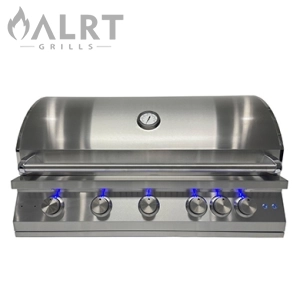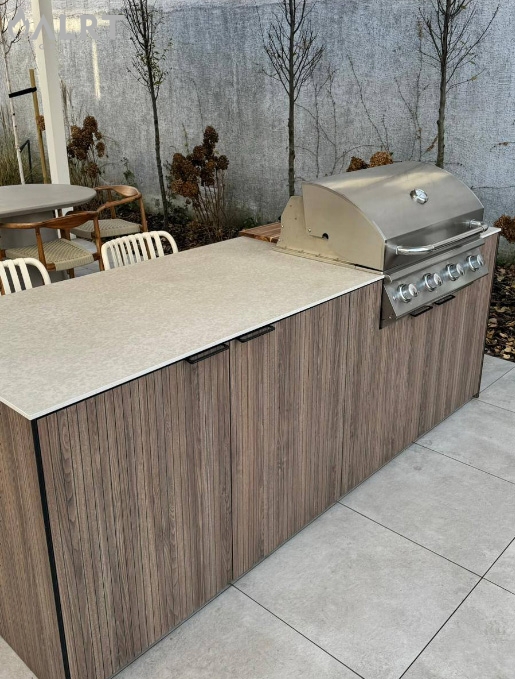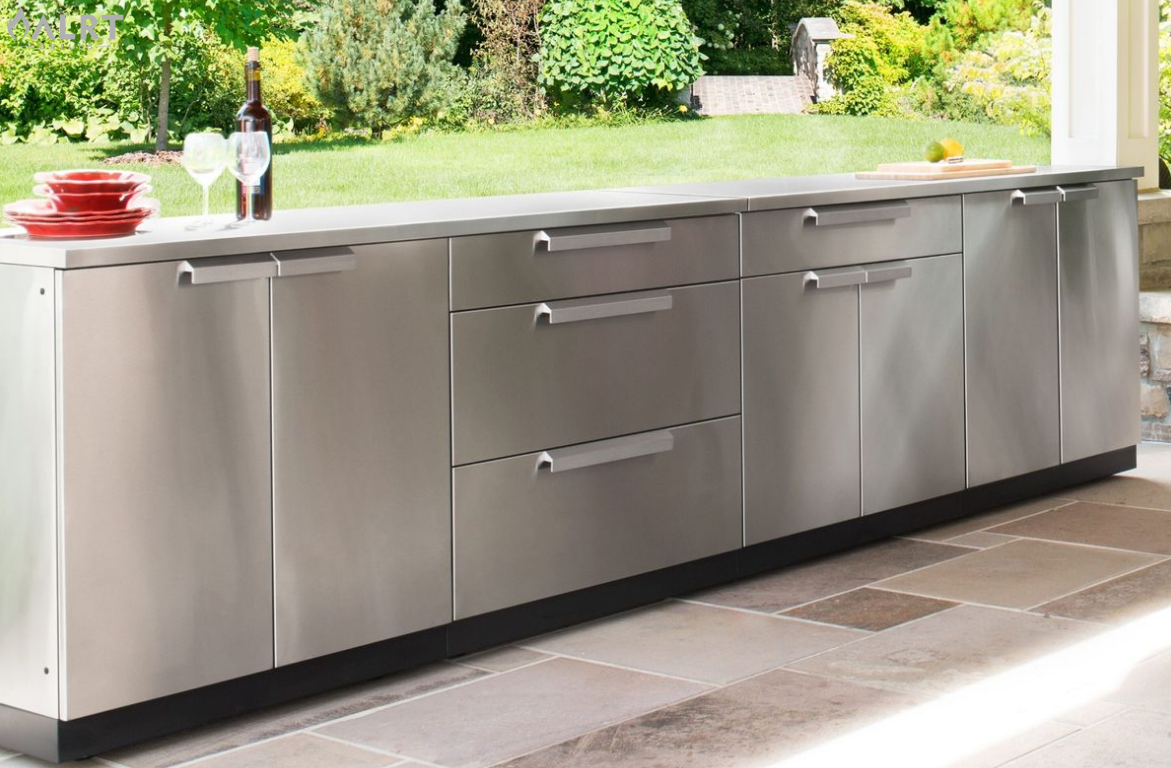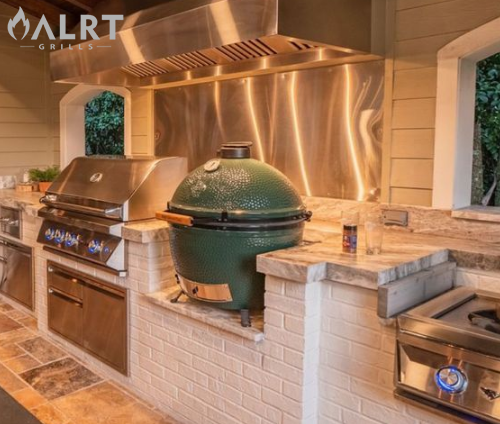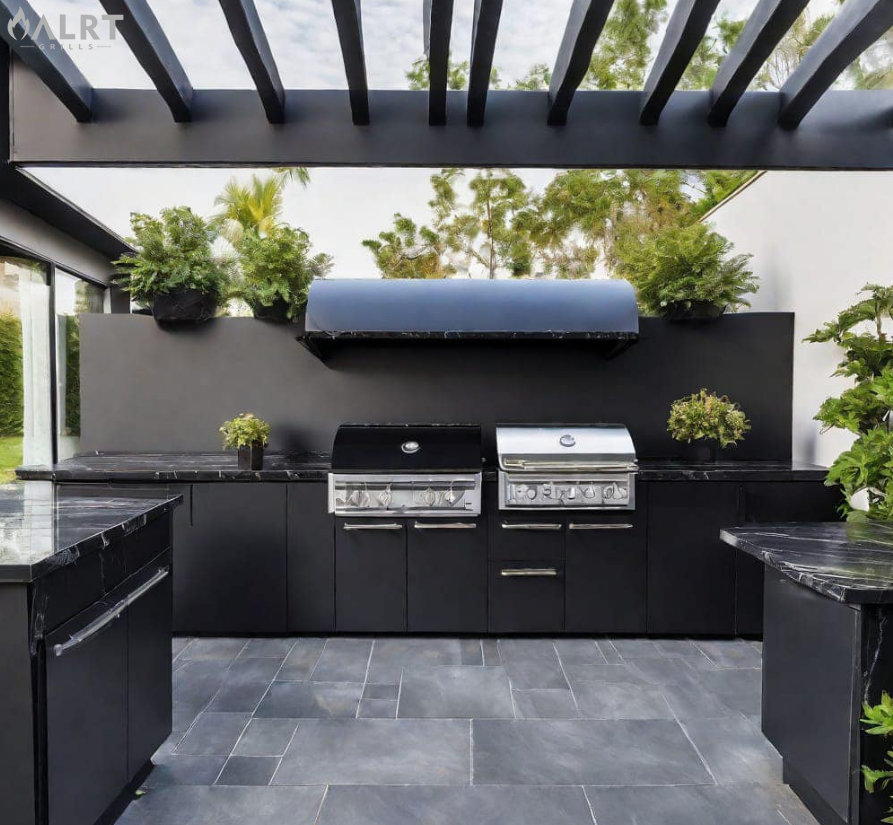
In the competitive landscape of outdoor cooking equipment, material selection is the cornerstone of product excellence.
As BBQ grill manufacturers specializing in outdoor built-in grills and wholesale BBQ islands, we recognize 304 stainless steel as the definitive choice for premium-grade outdoor gas grills. This article explores the scientific rationale, performance advantages, and commercial value of this alloy compared to 201-grade alternatives, providing actionable insights for outdoor kitchen suppliers and gas grill wholesalers.
Metallurgical Superiority of 304 vs. 201 Stainless Steel
Compositional Integrity
304 stainless steel's dominance stems from its balanced formula:
18% chromium forms a self-repairing oxide layer resistant to oxidation.
8% nickel enhances structural stability and luster retention.
<0.08% carbon prevents carbide precipitation during welding.
In contrast, 201 stainless steel contains:
3.5–5.5% nickel (insufficient for stable corrosion resistance)
5.5–7.5% manganese (prone to oxidation in humid environments)
16–18% chromium with weaker passive film formation
| Property | 304 Stainless | 201 Stainless |
|---|---|---|
| Salt Spray Resistance | 1,500+ hours | <300 hours |
| Thermal Stability | Maintains integrity at 800°C | Warps above 300°C |
| Food Safety | FDA-compliant | Potential Mn leaching |
Engineering Advantages for Grill Manufacturing
Structural Performance
For outdoor kitchen factories, 304's properties enable:
Zero thermal deformation ensuring precise burner alignment in built-in outdoor grills
Laser-cut edges maintaining corrosion resistance integrity
Electropolished surfaces resisting grease accumulation
201 stainless exhibits:
Magnetic properties complicating sensor integration
Surface pitting from acidic marinades
Accelerated wear in coastal BBQ island installations
Manufacturing Processes
Leading grill manufacturers employ specialized techniques for 304:
Argon-shielded TIG welding preserves chromium content
Passivation treatments enhance oxide layer durability
XRF spectroscopy verifies alloy composition
201-grade requires:
Frequent surface treatments to mask oxidation
Compromised weld integrity due to manganese content
Commercial Value Proposition
Brand Protection
For BBQ islands manufacturers, specifying 304:
Reduces warranty claims by 73% compared to 201-grade
Supports 25% premium pricing through NSF/ANSI 96 certification
Enables coastal certification for outdoor kitchen islands
Market Differentiation
Innovative outdoor kitchen factories leverage 304 for:
IoT-enabled temperature control in smart gas grills
Color-anodized finishes matching luxury outdoor kitchen cabinets
Modular systems integrating with wholesale BBQ islands
FAQ
Q: Why avoid 201 stainless in coastal BBQ islands?
A: 201's manganese content accelerates salt corrosion, with failure rates 4x higher than 304 in marine environments.
Q: Can 201 be used for non-structural components?
A: While possible for decorative panels, 201 requires quarterly maintenance to prevent discoloration in outdoor BBQ kitchens.
Q: How to identify authentic 304 stainless?
A: Reputable outdoor kitchen suppliers provide:
Mill test certificates with Cr/Ni ratios
Third-party XRF verification reports
NSF/ANSI 96 compliance documentation
Q: Does 304 require special cleaning?
A: Simple pH-neutral detergent suffices, unlike 201 needing specialized anti-oxidation cleaners.

 English
English Italian
Italian Russian
Russian German
German Arabic
Arabic Spanish
Spanish
